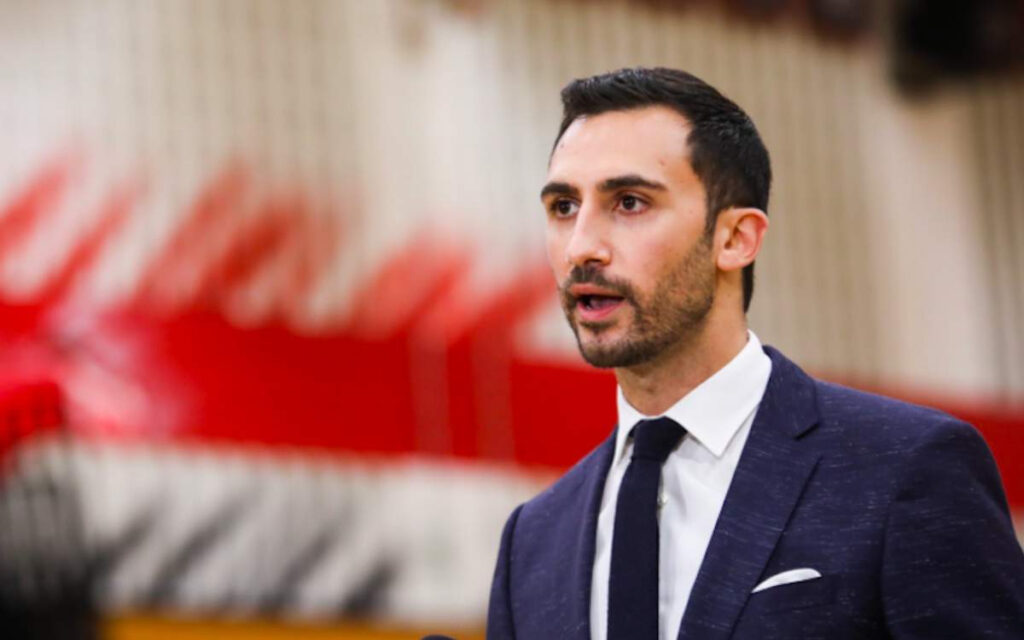
Cross-province consultations are underway to identify the spring budget’s priorities. One of them should be further steps for the childcare sector. Photo Credit: Stephen Leece/X.
January to March is pre-budget time for the Ontario government. Cross-province consultations are underway to identify the spring budget’s priorities. One of them should be further steps for the childcare sector.
In March 2022, Ontario signed onto the Canada-Wide Early Learning and Childcare Agreement (CWELCC), joining other provinces in a federal-provincial cost-sharing deal to create a long-lobbied for “ten dollar a day” childcare plan.
The goal was to support more participation in the workforce by making such care more affordable and accessible.
Childcare advocates cheered, as they should have, but there were others who predicted some unintended consequences governments would need to fix.
As Statistics Canada reported at the end of last year, there has been great progress on getting to the ten-dollar target but the program’s popularity may actually be decreasing availability.
The report concluded that 56 per cent of children aged zero to five years were in licensed or unlicensed care in 2023 but the number in 2019 was 60 per cent. Equally worrisome was that more parents – 49 per cent versus 36 per cent – reported that they had had trouble finding spots.
Affordability has improved – only 41 per cent said it was an issue, down from 48 per cent in 2019 – but the sector has been struggling to meet the anticipated increase in demand.
Two issues have proved the most challenging – attracting and retaining professional staff due to compensation and government rules around what are considered appropriate operating costs.
Ontario has already taken some steps on the wage front. Late last year, Education Minister Stephen Lecce announced an almost 20 per cent compensation bump, starting this month. The hourly wage for workers in participating childcare centres will be a minimum of $23.86 an hour with opportunities for further increases.
The increase was particularly important as it achieved wage parity with childcare workers employed by school boards in kindergarten programs, thus removing one barrier to hiring more workers in childcare centres.
To complement the wage bump, Ontario is also starting to promote the childcare profession, to provide professional development opportunities and to remove some of the red tape by automatically approving certified teachers or childcare workers to work in before and after school programs. It is hoped this will free up more childcare workers to move into childcare centres.
Advocates welcomed the moves although they are also recommending a salary scale or wage grid for more flexibility and a wage floor of between $30 and $40 per hour to really solve the problem.
The other issue undermining progress is the province’s approach to compensating participating childcare operators for their costs. While the government is understandably trying to ensure that only legitimate costs get covered, the YMCA, one of the largest providers of childcare in the province, has sounded the alarm, calling for a new, more realistic funding formula if Ontario expects to sustain and to continue to expand the number of centres.
Good progress has been made in Ontario – parents’ fees have already been reduced by 50 percent, saving families up to $10,000 a year, and 86,000 new spaces are being created.
It is an excellent start, but the job is not over yet. The economy needs more workers and more childcare can support that.
Finance Minister Peter Bethlenfalvy faces the always challenging problem of balancing provincial spending with revenues. While a strong supporter of the program, he has a long line up of critical sectors at his door with their hands out. Hopefully, childcare will not get crowded out.

Janet Ecker is a former Ontario Finance Minister, Minister of Education, Minister of Community and Social Services and Government House Leader in the governments of Premier Mike Harris and Premier Ernie Eves. After her political career, she served as the founding CEO of the Toronto Financial Services Alliance, a public-private partnership dedicated to building Toronto region into an international financial centre. She currently sits on a number of corporate and non-profit boards, agencies and advisory committees.
Ms. Ecker received the Order of Canada for her public service contributions and was recognized as one of the “Most Influential People in the World’s Financial Centres” by Financial Centres International. She also received a “Canada’s Most Powerful Women: Top 100 Award” from the Women’s Executive Network and the Richard Ivey School of Business, among other awards. She is also one of the founders of Equal Voice, a national, multi-partisan organization working to elect more women.




















